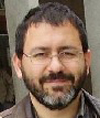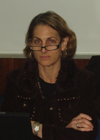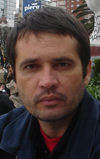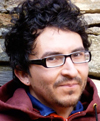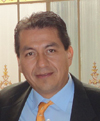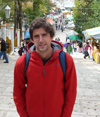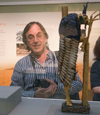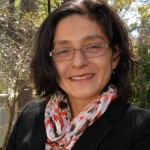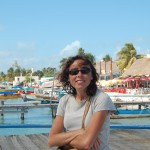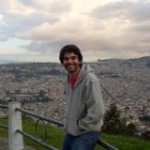People
 |
Laura Giraudo INTERINDI Network Coordinator Laura Giraudo is a researcher at the School of Hispanic American Studies of the Spanish National Research Council (EEHA-CSIC) in Seville, Spain. Her current research focuses on Indian question and indigenismo; cultural and racial categories, and Inter-American networks, projects and institutions. She was the INTERINDI project director and is now the coordinator of the INTERINDI NETWORK. Her publications include: Anular las distancias: Los gobiernos posrevolucionarios en México y la transformación cultural de indios y campesinos (2008), La questione indigena in America Latina (2009), as well as the edited volumes: Ciudadanía y derechos indígenas en América Latina: poblaciones, estados y orden internacional (CEPC, 2007) and Derechos, costumbres y jurisdicción indígenas en la América Latina contemporánea (CEPC, 2008). With Juan Martín Sánchez, she edited La ambivalente historia del indigenismo: Campo interamericano y trayectorias nacionales, 1940-1970 (2011) and, with Stephen E. Lewis, the special issue of Latin American Perspectives devoted to «Rethinking Indigenismo on the American Continent» (September 2012). For more: Academia Address: Escuela de Estudios Hispano-Americanos, CSIC, C/ Alfonso XII, n. 16, 41002 Seville, SpainPhone Number: (34) 954 50 11 20 E-mail:
laura.giraudo@csic.es; ellegiraudo@gmail.com
|
 |
Nadine Béligand
Nadine Béligand es profesora de Historia Moderna – Historia de Iberoamérica en la Universidad Lumière – Lyon 2, e investigadora de la UMR CNRS 5190-LARHRA, en Lyon (Francia). Sus temas de investigación se desarrollan en torno a la historia política, social, religiosa y cultural de la sociedades indígenas de Nueva España, (siglos XVI-XVIII) Entre sus publicaciones
Como autora «La seigneurie matlatzinca, une manière d’aborder l’altepetl », Americae, The European Journal of Americanist Archaeology, nº 1, 2015; «Cacique – cacicazgo. Fin XVe-XVIIIe siècle », In Olivier Christin (dir.), Dictionnaire des concepts nomades en sciences humaines, Paris, A.-M. Métailié, 2010, pp. 83-98; « L’éviction des « étrangers » par le lignage, la légitimité et le mérite. La production historique des caciques immémoriaux de la vallée de Toluca, Mexique central (XVIIe – XVIIIe siècle) »,In Pierre Ragon (ed.), Les Généalogies imaginaires. Ancêtres, lignages et communautés idéales (XVIe-XXe siècle), Publications des Universités de Rouen et du Havre, Mont-Saint-Aignan, 2007, pp. 49-82. |
 |
Olaf Kaltmeier
Olaf Kaltmeier is professor of Iberoamerican History and director of the Center for InterAmerican Studies (CIAS) at Bielefeld University. He conducts the research programm “The Americas as Space of Entanglement” funded by the Federal Ministry of Education and Research. His recent publications include the monographs Konjunkturen der (De-)Kolonialisierung. Indigene Gemeinschaften, Hacienda und Staat in den ecuadorianischen Anden von der Kolonialzeit bis heute (Bielefeld: transcript, 2016) and Jatarishun. Testimonios de la lucha indígena de Saquisilí (1930-2006) (Quito: Corporación Editora Nacional, 2008). He has edited the volumes Entangled Heritages. Postcolonial Perspectives on the Uses of the Past in Latin America (Routledge 2016; with Mario Rufer), En diálogo. Metodologías horizontales en Ciencias Sociales y Culturales (Barcelona: Gedisa, 2012; with Sarah Corona), and Los Andes en movimiento. Identidad y poder en el nuevo paisaje político (Quito: Corporación Editora Nacional, 2009; with Ospina, Pablo and Büschges, Christian). The last one is awarded with the Premio Tobar Guarderas for the best publication in social sciences in Ecuador in 2009. His most recent work is on the history of interamerican indigenist policies and on the relation between national parks, processes of colonization, and indigenous peoples in the Southern Cone. E-Mail:
olaf.kaltmeier@uni-bielefeld.de
|

